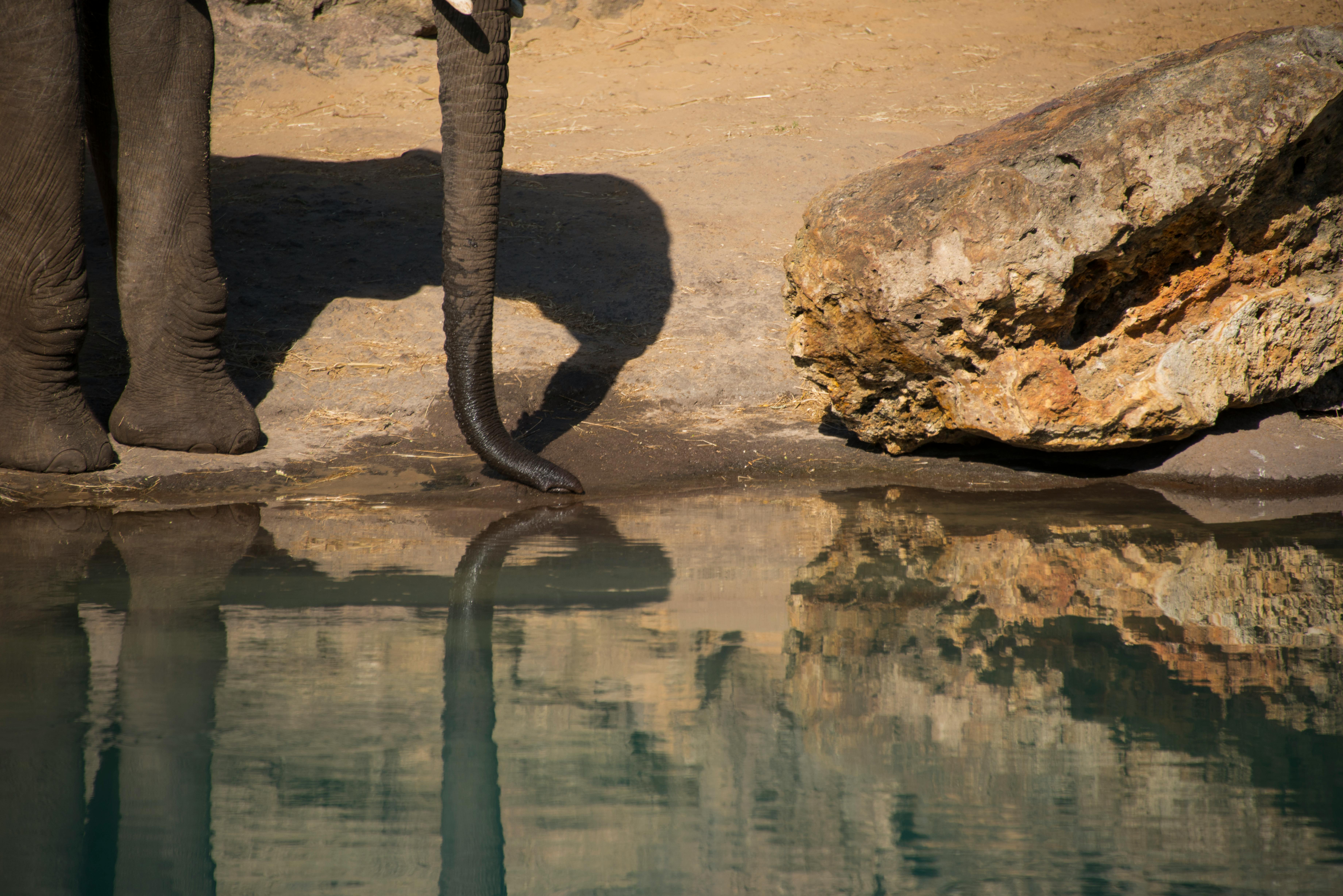Drinking water and distilled water can often be confused for being the same, however there are some important differences between them. Distilled water is created through a process of distillation, where it is boiled and condensed to remove all minerals and contaminants. On the other hand, drinking water can come from a variety of sources, including natural springs, wells, or public water systems that may contain some minerals and contaminants. In this article, we will compare the two types of water to better understand their differences.No, drinking water and distilled water are not the same. Drinking water is water that has been treated to make it safe for human consumption. It may be sourced from a river, lake, well or other body of water and contains some minerals and other naturally occurring substances. Distilled water is water that has been purified through a process called distillation. This involves boiling the water and then collecting the steam as it condenses. As a result, distilled water contains almost no minerals or other substances.
What is Drinking Water?
Drinking water, also known as potable water or bottled water, is water that is safe to drink or to use for food preparation. It is clear and free from any harmful substances such as bacteria, viruses, parasites, and other impurities. It also meets certain standards set by regulatory bodies such as the World Health Organization and the US Environmental Protection Agency.
The most common sources of drinking water are public water systems that provide treated water from rivers, lakes, wells, springs or reservoirs. These systems are regulated by the Environmental Protection Agency (EPA). The EPA sets standards for contaminants in public drinking water to ensure that it is safe to drink. Private wells are not subject to the same regulations as public systems and may contain higher levels of contaminants.
It’s important to note that not all water is suitable for drinking; untreated surface waters such as rivers and streams typically contain bacteria or other contaminants that can make them unsafe to drink. Additionally, some bottled waters contain added minerals or chemicals such as fluoride which can improve dental health but may be harmful if consumed in large amounts.
<
What is Distilled Water?
Distilled water is water that has been boiled and evaporated into steam. The steam is then collected and condensed back into a liquid form, leaving behind any impurities or minerals that may have been present in the original water. This process purifies the water, making it safe to drink. Distilled water is often used for drinking and cooking, as it does not contain any of the harmful chemicals or minerals found in other types of drinking water. It also has a neutral flavor, which can be beneficial for people who do not like the taste of tap water.
Distilled water is also used in many medical and laboratory settings because it does not contain any potentially hazardous materials. In addition, it is also used in certain industrial applications due to its lack of minerals and contaminants. Many aquariums use distilled water to ensure that their fish are living in clean and healthy conditions. Finally, distilled water is often preferred for cleaning purposes due to its lack of minerals which could otherwise leave behind residue or stains on surfaces.
In summary, distilled water is pure H20 that has been boiled and evaporated into steam before being condensed back into liquid
Drinking Water vs Distilled Water
Drinking water and distilled water are two very different types of water. Drinking water is the most common type of water that is used for everyday activities, such as cooking, drinking, and showering. It typically comes from a municipal source and is treated with chlorine or other chemicals to make it safe to drink. Distilled water, on the other hand, is created through a process of distillation that removes all impurities from the water. This makes it ideal for certain medical uses such as dialysis and sterilization.
The main difference between drinking water and distilled water is in their purity levels. Drinking water usually contains trace amounts of minerals and other contaminants that are left behind during the treatment process. Distilled water, on the other hand, has no minerals or contaminants as the distillation process removes everything from the original source of water. This makes it much purer than drinking water and suitable for medical applications where ultra-pure water is required.
Another difference between drinking water and distilled water is in their taste. Drinking water can often have a slightly metallic taste due to its mineral content while distilled
Drinking Water vs Distilled Water
Drinking water and distilled water are two completely different types of water. Drinking water is the type of water that comes from a municipal source, such as a lake, river, or reservoir. This type of water is treated to remove any contaminants that may be present in it. Distilled water, on the other hand, is created through a process of distillation. During this process, the liquid is boiled and the steam is then condensed back into liquid form. The result is extremely pure and free from any contaminants or dissolved solids.
The differences between drinking water and distilled water are numerous. Drinking water has a variety of minerals and other dissolved solids in it which give it its taste and smell. Distilled water has been stripped of all these minerals so it has no taste or smell at all. In addition, drinking water can contain bacteria or other microorganisms that may not be present in distilled water due to its purification process.
Another difference between drinking water and distilled water is their use for specific purposes. Drinking water can be used for drinking, cooking, cleaning, bathing, etc., while distilled water should only be used

The Benefits of Drinking Water
Drinking water is essential for maintaining good health. It helps to keep the body hydrated and functioning properly. Water also helps to cleanse the body of toxins and waste products, thus helping to maintain a healthy immune system. Additionally, drinking adequate amounts of water can help to reduce the risk of certain diseases, such as heart disease and diabetes. Water is also important for proper digestion and absorption of nutrients from food. Furthermore, drinking enough water can help keep skin looking youthful and radiant. Lastly, staying hydrated can help improve mental clarity, alertness, and concentration.
In conclusion, drinking plenty of water is an important part of leading a healthy lifestyle. By ensuring that you are getting enough fluids throughout the day, you can help to boost your overall health and wellbeing.
The Benefits of Distilled Water
Distilled water is an increasingly popular choice for drinking water. It has many advantages over tap and bottled water, and can provide a healthier alternative to these sources. Distilled water is clean, free of contaminants and other impurities, and is a good source of hydration. Here are some of the benefits of using distilled water:
Removes Contaminants: The distillation process removes almost all impurities from the water, including heavy metals, chemicals, and minerals. This makes it much purer than tap or bottled water, which can contain contaminants such as chlorine or lead.
No Additives: Distilled water does not contain any additives or preservatives. This means that it is free from artificial flavors, colors, and sweeteners that are often added to bottled water.
Hydrates Better: Distilled water absorbs into the body more quickly than other types of water, meaning that it can help you stay hydrated faster. It also helps to flush out toxins more effectively than other
Differences in Taste Between Drinking Water and Distilled Water
When it comes to the taste of drinking water versus distilled water, there is a clear difference. Drinking water tends to have a mild mineral flavor, while distilled water has no flavor at all. The minerals in drinking water are what give it its distinct taste, whereas distilled water has been stripped of all minerals during the distillation process.
The difference in taste between drinking water and distilled water is also affected by the source of the water. Drinking water can come from a variety of sources such as rivers, lakes, or wells. Depending on where the drinking water comes from, it may contain different levels of minerals and other substances that can affect its flavor. Distilled water is made by boiling regular tap water and then condensing the steam back into liquid form, which removes any minerals present in the original tap water.
Another factor that affects the taste of drinking water versus that of distilled water is its pH level. Generally speaking, drinking waters tend to have a higher pH level than distilled waters. This means that drinking waters will usually have a slightly alkaline or bitter taste compared to distilled waters, which will be more neutral

Conclusion
Drinking water and distilled water are not the same. Water that has been distilled is more purified than regular drinking water, but it also lacks certain minerals that the body needs. For this reason, distilled water should only be used for specific purposes, such as when boiling food or making coffee. Regular drinking water is still the best option for everyday use since it contains essential minerals and electrolytes that our bodies need.
Overall, while both drinking water and distilled water provide hydration, they differ in terms of their composition and should be used for different purposes. The occasional use of distilled water can be beneficial in certain situations, but regular drinking water should be the go-to choice for daily consumption.

